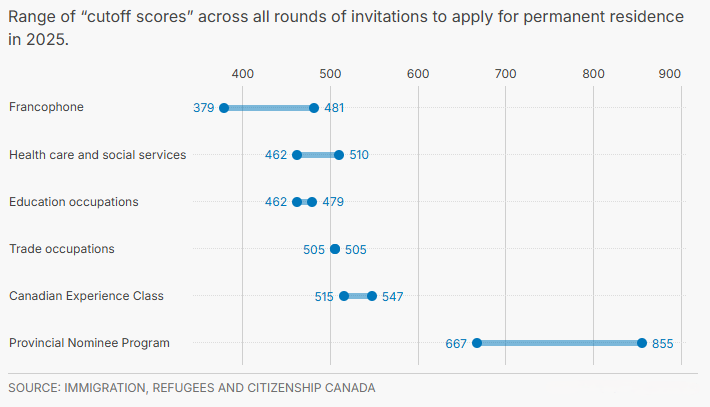Emotional Impact of Reunification Policies

Families face heartbreak as reunification challenges persist
On This Page You Will Find:
- The emotional impact of Canada's reunification program
- Real stories from affected families
- Key challenges and proposed policy changes
- Expert insights on future immigration trends
Summary:
Amidst rising anticipation, Canada's Parents and Grandparents Reunification Program has left many families heartbroken. This article delves into the emotional and logistical hurdles faced by families yearning to reunite with their loved ones. With expert insights and real stories, we explore the program's current limitations and potential reforms. Discover how these changes could shape the future of family reunification in Canada.
🔑 Key Takeaways:
- Many families face frustration due to limited spots in the reunification program.
- Emotional stories highlight the personal impact of immigration policies.
- Policy changes could facilitate more family reunifications.
- Expert insights suggest reforms for a more inclusive future.
- Understanding these challenges could influence future immigration trends.
The Bigger Picture
Here's what most people miss: Canada's Parent and Grandparent Reunification Program isn't just a standalone issue. It's a reflection of a growing global paradox where nations seek skilled immigrants but struggle with family reunification. This mirrors another surprising pattern—technology's role in immigration. As tech giants expand, countries like Canada prioritize economic immigrants over family ties, echoing Silicon Valley's influence on immigration policies.
Picture this: families are like puzzle pieces scattered across continents, each waiting their turn to fit into a larger picture. The program's emotional toll isn't just about numbers; it's about incomplete puzzles longing for assembly. As more families share stories like Priya Patel's, the outcry is becoming the catalyst for change.
In the future, expect immigration reforms that resemble a tech update—addressing bugs while prioritizing efficiency and empathy. If Canada can integrate its immigration policies with the compassion it boasts, it will set a precedent, turning a bureaucratic maze into a bridge of human connection. This isn't just about policy; it's about redefining what inclusivity truly means in a digitized world.
Families Torn Apart: The Emotional Toll of Canada's Reunification Program
Imagine waiting years to reunite with your parents or grandparents, only to find the path blocked by bureaucracy. Such is the reality for many families navigating Canada's Parents and Grandparents Reunification Program. In a recent announcement, the federal government revealed that the program will continue to operate with a limited number of spots, leaving many hopeful families disheartened CTV News. For those who have been separated from their loved ones for years, this news is a significant emotional blow.
The Struggle to Reunite: Stories from the Heart
Consider the story of Priya Patel, a software engineer from India, who has been trying to bring her aging parents to Canada for over five years. Despite her persistent efforts, the limited availability of spots has left her in a constant state of uncertainty. "It's not just about numbers; it's about lives," Priya expresses, echoing the sentiments of many in her situation CTV News.
The program currently accepts a fixed number of applications annually, a limitation that has been met with criticism from affected families and immigration advocates alike. The cap on applications creates a competitive environment where the emotional toll is often overlooked, further complicating the process CBC News.
Policy Challenges and Proposed Changes
Experts argue that the current system requires significant reform to address the emotional and logistical challenges faced by families. Immigration policy specialist Dr. Sarah Green suggests increasing the annual cap and introducing more flexible criteria to accommodate diverse family situations. "Reforming the program is essential to keeping families together and ensuring Canada's immigration policies reflect its values of inclusivity and support," says Dr. Green Global News.
Moreover, potential reforms could include prioritizing applications based on humanitarian grounds, such as health issues or urgent family needs, to ensure that those in desperate situations can be reunited with their loved ones more swiftly CTV News.
Looking Ahead: Building a More Inclusive Future
While the federal government has acknowledged the need for improvements, concrete steps have yet to be taken. As debates continue, families like Priya's remain hopeful that future changes will bring about a more compassionate and effective reunification process CBC News. The conversation around these policy challenges highlights the broader implications for Canada's immigration landscape, emphasizing the need for policies that balance bureaucratic efficiency with human empathy Global News.
In conclusion, Canada stands at a crossroads in its approach to family reunification. As discussions evolve, the voices of those affected remain crucial in shaping policies that reflect Canada's commitment to family unity and inclusivity. Whether reform comes swiftly or gradually, the hope for a future where families can be reunited without undue hardship remains a beacon for many.
 RCIC News.
RCIC News. 